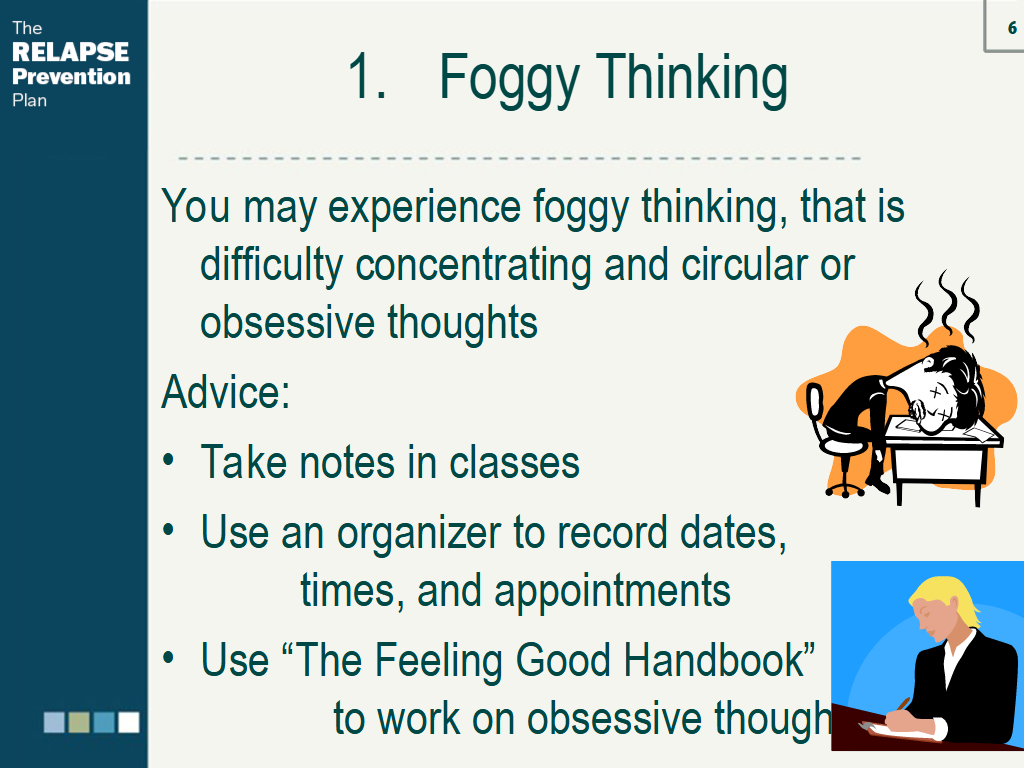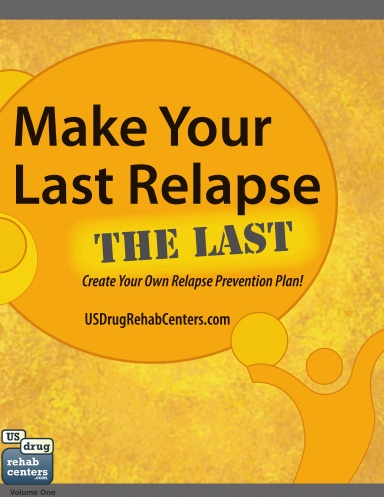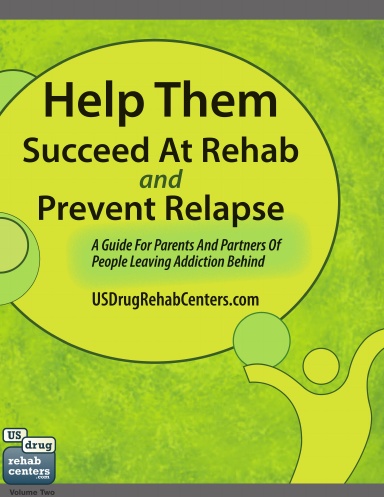Lesson 14: Managing Leftover Toxins - Slide 6






Foggy Thinking
- You may experience foggy thinking, that is difficulty concentrating and circular or obsessive thoughts
- Advice:
- Take notes in classes
- Use an organizer to record dates, times, and appointments
- Use “The Feeling Good Handbook” to work on obsessive thoughts
Notes:
Pg. 305-306 “Teens Under The Influence, The Truth About Kids, Alcohol, and Other Drugs-How to Recognize the Problem and What to Do About It,” Katherine Ketcham and Nicholas A. Pace, MD, Ballentine Books, New York, 2003.
Medical Disclaimer
Certain sections of this website deal with health and medical-related issues. The information provided on relapsepreventionplan.net is for informational purposes only; it does not constitute the provision or practice of medicl, nursing, or professional health care advice or services. Nothing contained on relapsepreventionplan.net is intended to be used for medical diagnosis or treatment, or as a substitute for consultation with a qualified health care professional. You should consult your physician or other qualified health care provider regarding any specific questions you my have. You should never disregard professional advice or delay in seeking treatment based on the information contain on this site or other websites linked to or from it.







